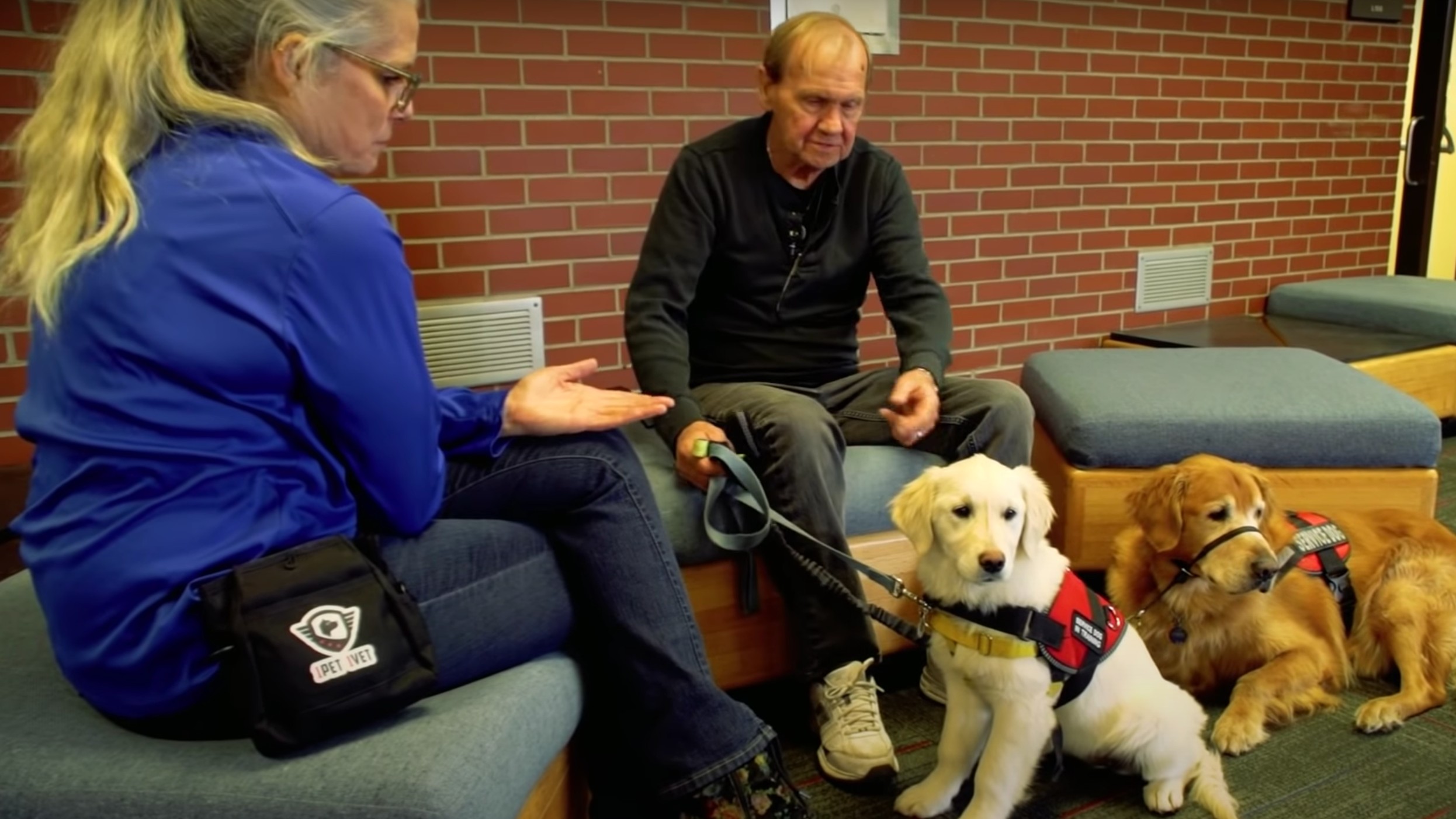Service dogs for PTSD are transforming the lives of America’s veterans
Service dogs for PTSD are reducing the rates of suicide amongst veterans and healing these heroes with a love that illuminates the darkness

Get the best advice, tips and top tech for your beloved Pets
You are now subscribed
Your newsletter sign-up was successful
Those that risk their lives for their countries often return home to a world they can no longer relate to, and while many find themselves grappling with the darkness of mental illness, specially trained service dogs for PTSD are helping to once again flood their hearts and minds with light.
1 Pet 1 Vet, now known as the American Veteran’s Service Dog Academy (AVSDA), was founded in 2013 by Afghanistan veteran Joe Trainer Jr. who wanted to help people like him who were returning home and struggling with the physical and mental effects of war.
“This started as a group of veterans who just wanted to help other veterans and all of us had dogs, so we knew that they made a big difference, so we wanted to get that help to other veterans,” explains AVSDA training coordinator, Eric Carlson.
Their main goal was to make an impact on the veteran suicide rate, which led the group to focus their attention on those who had been diagnosed with PTSD.
“PTSD is a condition that can sometimes result from a traumatic experience, typically a life-threatening experience, and some people with PTSD experience emotional detachment where they may detach from social situations and may not engage in activities they used to enjoy,” says community psychologist Cari Stevenson.
- Meet the rescue dogs helping military veterans with PTSD
- Seven amazing jobs that working dogs can do
- Pet Therapy: The amazing animals helping those who need it most
Peggy Moran, the training director at AVSDA, says dogs can help those with PTSD in several ways. “I’ve been training dogs for 42 years. I’ve primarily trained the dogs to assist the veterans with three sorts of symptoms. They contend with flashbacks and night terrors or nightmares, they contend with social numbing, and then they contend with being socially avoidant, so the dogs are able to help in all three of those categories.”
Watching the veterans, it’s clear to see that the impact these dogs are having on their lives is priceless. “I do have an anger issue,” veteran Ben Dominik admits, “if I’m starting to get angry, Noah will just come up by me and snuggle and give me peace and just change my mind.”
Get the best advice, tips and top tech for your beloved Pets
Countless other veterans that have come into contact with AVSDA share moving tales of how these special pups have helped them overcome their wish to end their lives and provided comfort during the harrowing flashbacks that are a hallmark of PTSD.
“Service dogs help veterans first and foremost in reducing their rate of suicide, which is our primary goal,” explains Moran. “Secondarily they help with both reintegration into society and they help them deal with symptoms such as anxiety, depression, and even physical symptoms that come from post-traumatic stress.”
Stevenson is quick to second Moran, speaking eloquently about the vital role these dogs have to play in the lives of veterans returning home. “Often people with PTSD are kind of living in the past and reliving those experiences that they had and also living in the future because they’re fearful of those things happening again. The dogs help to keep them in the present.”

Kathryn is a freelance writer who has been a member of the PetsRadar family since it launched in 2020. Highly experienced in her field, she's driven by a desire to provide pet parents with accurate, timely, and informative content that enables them to provide their fur friends with everything they need to thrive.
Kathryn works closely with vets and trainers to ensure all articles offer the most up-to-date information across a range of pet-related fields, from insights into health and behavior issues to tips on products and training.
When she’s not busy crafting the perfect sentence for her features, buying guides and news pieces, she can be found hanging out with her family (which includes one super sassy cat and a kitten), drinking copious amounts of Jasmine tea and reading all the books.
She has written for a range of publications, including Fit&Well, Top Ten Reviews, LiveScience, Goodto, and Product Hunt.
